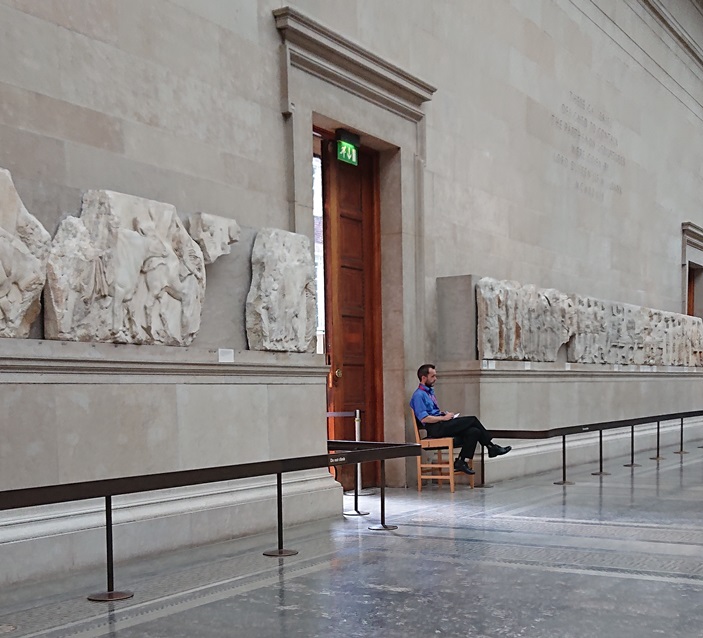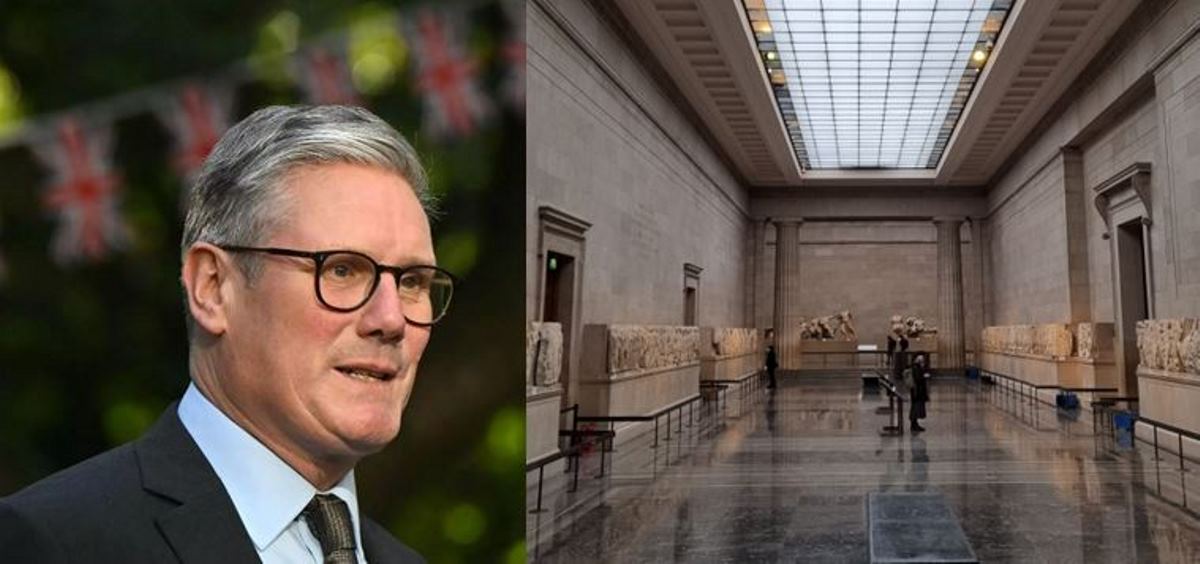ATHENS (Reuters) - Greece welcomed back on Tuesday a marble fragment from a frieze decorating the Parthenon temple which an Austrian soldier removed during World War Two, but renewed a call for all its stolen treasures to be returned.
An inscription on the fragment, measuring 7-by-30 cm (2.8 by 12 inches), says it was taken from the Acropolis in Athens on February 16, 1943 -- in the midst of the three-year occupation of Greece by the Axis powers, led by Germany.
Martha Dahlgren inherited the piece -- broken from the frieze adorning the Parthenon's inner colonnade -- from her grandfather and decided to return it to Greece.
"Today we honour the return of an architectural part of the Acropolis ... It is a very symbolic return," Greek Culture Minister Michalis Liapis said in a statement.
Greece in recent years has stepped up its campaign to recover ancient artefacts, and especially large sections of the decorative frieze removed from the Parthenon in 1801 by Lord Elgin, the then-British ambassador to the Ottoman empire.
The Parthenon Marbles, also known as the Elgin Marbles, were bought by the British Museum in 1816 and are exhibited as a prized part of its collection in London.
The British Museum repeatedly has rejected Greek calls for the return of the 2,500-year-old frieze on the ground that its statutes would not allow it to do so.
"The request for the return of the Parthenon Marbles has exceeded the borders of our country. It has become the request and the vision of the global cultural community," Liapis said, flanked by two leading archaeologists who support the return.
The fragment was the third piece of the Parthenon Marbles to return home in recent months after the Vatican returned a small fragment on a one-year loan last month and a museum in Sicily gave back another piece in September.





Comments powered by CComment